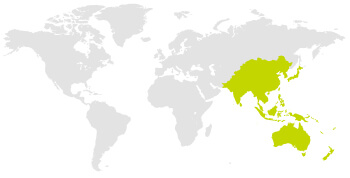Data Security Compliance for the Act on Protection of Personal Information in Japan
Thales helps organizations address the essential requirements for advanced encryption and key management of APPI.

The Act on the Protection of Personal Information (APPI) – No. 57 of 2003 was enacted on May 15 and fully enforced in April 2003, aiming to protect the rights and interests of individuals while considering the usefulness of personal information.
The APPI has been revised three times to respond to changes in economic and social conditions such as the progress of digital technology and globalization, as well as the growing awareness of personal information globally, the latest revision which enforced on Apr 4, 2022, has consolidated and integrated the rules of private businesses, national administrative agencies, independent administrative agencies, and other local government agencies and local incorporated administrative agencies.
Thales helps Japanese organizations comply with the Act on the Protection of Personal Information (APPI) by addressing essential requirements for advanced encryption and key management.
Regulation Overview
The Act on the Protection of Personal Information (APPI) - No. 57 of 2003 is the primary legislation that applies to the collection and processing of personal data and the law went through revision in 2017 and 2022 respectively.
The APPI establishes the Personal Information Protection Commission (PPC) a regulatory body that can issue guidance on the application and interpretation of the Law and its requirements.
Practical guidance for the APPI – General Rules was published by the PPC with 10 chapters below:
Organizations based in Japan must comply with the APPI requirements when handling the personal data of data subjects. If you are a foreign organization, you will be subject to the APPI if the following three criteria are met:
Thales helps Japanese organizations comply with the Act on Protection of Personal Information by addressing essential requirements of protecting personal information for the following requirements with advanced encryption and key management.
Requirement: Chapter 2-1: Personal Information; Chapter 3-5-3-1: Situations to be reported & Chapter 10-3: Organizational safety management measures
Encryption and tokenization can successfully secure sensitive data such as personal information, the cryptographic keys themselves must be secured, managed and controlled by the organization to further enhance data security.
Protect sensitive data
Control:
Requirement: Chapter 10-6: Technical safety control measures
Network encryption can protect data in motion and ransomware protection solution helps organizations detect cyber attacks and secure sensitive data.

The Act on the Protection of Personal Information was enacted on May 15 and fully enforced in April 2003, aiming to protect the rights and interests of individuals (APPI) while considering the usefulness of personal information. Information such as name, gender, date of birth,...

Thales enables organizations to comply with PDPD Requirements by recommending the appropriate data security and identity management technologies.

Indonesia passed its first Personal Data Protection (PDP) Law in 2022. The PDP Law is an effort to enhance the existing regulatory framework on personal data protection, it signifies the development of policies on personal data protection and confidentiality and strengthens...

Perhaps the most comprehensive data privacy standard to date, GDPR affects any organization that processes the personal data of EU citizens - regardless of where the organization is headquartered.

Any organization that plays a role in processing credit and debit card payments must comply with the strict PCI DSS compliance requirements for the processing, storage and transmission of account data.

Data breach notification requirements following loss of personal information have been enacted by nations around the globe. They vary by jurisdiction but almost universally include a “safe harbor” clause.